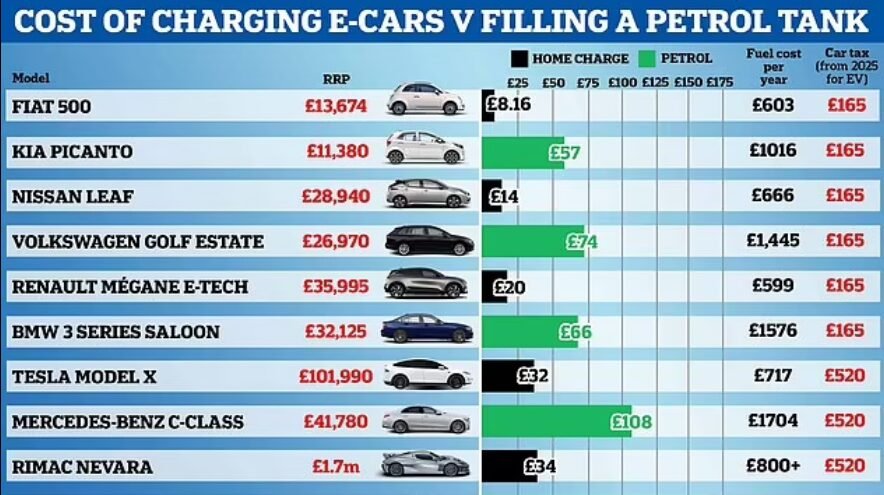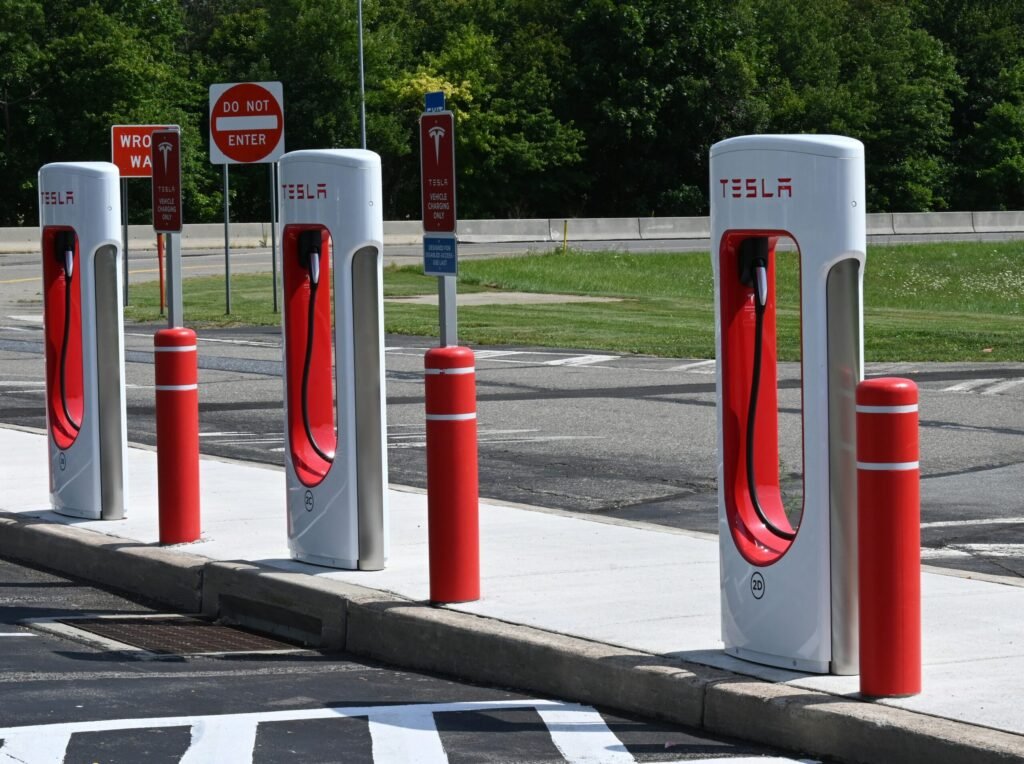Considering the switch to an electric vehicle? You’re not alone. Many are weighing the benefits and costs of owning an electric car. With the rising costs of fuel and growing environmental concerns, electric cars have become an attractive option.

As you ponder whether to make the switch, understanding the cost of owning an electric car is crucial. This includes not just the purchase price, but also ongoing expenses like charging and maintenance.
Let’s explore the key factors to help you decide if an electric car is right for you.
Key Takeaways
- Understand the total cost of ownership for an electric car.
- Learn about the benefits of driving an electric vehicle.
- Discover how electric cars can impact your daily life.
- Explore the environmental benefits of electric cars.
- Consider the current incentives for buying electric cars.
Is It Worth Buying an Electric Car? The Key Benefits
The decision to buy an electric car hinges on several key advantages that make them an attractive option for many drivers. As you weigh the pros and cons, understanding these benefits can help you make an informed decision.
Lower Operating and Maintenance Costs
One of the most significant benefits of electric cars is their lower operating costs compared to traditional gas-powered vehicles. Electric cars are highly efficient, converting about 60% to 70% of the electrical energy from the grid to power the wheels, while gas-powered cars only convert about 20% of the energy stored in gasoline to power the wheels. This efficiency translates into savings on “fuel” costs, as electricity is generally cheaper than gasoline. Additionally, electric cars have fewer moving parts than gas cars, which means they require less maintenance. There’s no oil to change, and brake wear is reduced due to regenerative braking.
Some key cost savings include:
- Lower “fuel” costs: Charging an electric car can cost as little as $3 to $5 per 100 miles, compared to $12 to $15 per 100 miles for gas-powered cars.
- Reduced maintenance: With fewer moving parts, there’s less wear and tear on the vehicle, reducing the need for repairs.
- Less frequent “oil changes”: Electric cars don’t require oil changes, eliminating this maintenance cost entirely.
Performance and Driving Experience
Electric cars are not just environmentally friendly; they also offer a compelling driving experience. One of the standout features of electric vehicles is their instant torque, which provides quick and smooth acceleration. This makes electric cars feel responsive and fun to drive. Moreover, electric cars tend to have a lower center of gravity due to the placement of the batteries, which can improve handling and stability.
The driving experience in an electric car is often described as quiet and smooth, with less vibration than traditional gas-powered cars. This can make for a more comfortable ride, especially on long trips.
Some of the performance highlights of electric cars include:
- Instant torque for quick acceleration.
- A lower center of gravity for improved handling.
- A smoother, quieter ride due to the electric motor.
Financial Analysis: Electric Car vs. Gas Car
When considering the switch to an electric car, understanding the financial implications is crucial. The decision involves not just the initial purchase price but also long-term costs and savings.

Upfront Costs vs. Long-Term Savings
Electric cars typically have a higher upfront cost compared to their gas-powered counterparts. However, they offer significant long-term savings. According to the U.S. Department of Energy, charging an electric car can cost as little as $3 to $5 per 100 miles, whereas driving a gas car costs around $12 to $15 per 100 miles. Over time, these savings on fuel can be substantial.
Additionally, electric cars require less maintenance than gas cars. They have fewer moving parts and do not need oil changes, which can lead to savings on maintenance costs over the vehicle’s lifetime. As Consumer Reports notes, “owning an electric vehicle can save you money on repairs and maintenance.”
Federal and State Electric Car Rebates
To offset the higher upfront cost, various incentives are available for electric car buyers. The federal government offers a tax credit of up to $7,500 for eligible electric vehicles. Moreover, many states provide additional rebates and incentives. For instance, California offers a rebate of up to $5,000 through the Clean Vehicle Rebate Project. It’s essential to research the specific incentives available in your state.
“The incentives available for electric vehicles can significantly reduce the upfront cost, making them more competitive with gas-powered cars.”
— International Council on Clean Transportation
Insurance, Depreciation, and Resale Value
Insurance costs for electric cars can be slightly higher than for gas cars, but this varies by insurer and vehicle model. It’s crucial to compare insurance quotes to understand the potential costs.
Depreciation is another factor to consider. While electric cars have historically depreciated faster than gas cars, their resale value is improving as the technology becomes more mainstream. Models like Tesla have shown strong resale values, indicating a trend towards better retention of value over time.
- Research insurance costs for different models.
- Consider the depreciation rate of the electric car model you’re interested in.
- Look into the historical resale values of electric cars.
By carefully analyzing these financial aspects, you can make a more informed decision about whether an electric car is the right choice for you.
Practical Considerations Before Making the Switch
The decision to buy an electric car involves more than just comparing costs; it requires considering several practical aspects that can significantly impact your daily life and driving experience.
Electric Car Charging Stations: Home and Public Options

One of the primary concerns for potential electric car owners is the availability and accessibility of charging stations. You can charge your electric car at home using a Level 1 (120V) or Level 2 (240V) charger. Level 1 chargers are convenient because they can be used with a standard household outlet, but they charge more slowly. Level 2 chargers, on the other hand, require a dedicated 240-volt charging station and can charge your car significantly faster.
In addition to home charging, public charging infrastructure is rapidly expanding. You can find public charging stations at shopping centers, workplaces, and along highways. Many electric car owners rely on a combination of home and public charging to meet their needs. When considering an electric car, it’s essential to research the public charging options available in your area and along your common routes.
Key considerations for electric car charging include:
- The cost and installation requirements for home charging stations
- The availability and accessibility of public charging stations
- The charging speed of different types of chargers

Range Anxiety and Real-World Driving Needs
Range anxiety is a common concern among those considering an electric car. It refers to the fear that your car will run out of battery before you can recharge it. However, most modern electric cars have a range of over 200 miles on a single charge, with some models offering up to 500 miles or more.
To alleviate range anxiety, it’s crucial to understand your real-world driving needs. If you have a relatively short commute or primarily drive within a city, an electric car’s range may be more than sufficient for your daily needs. Additionally, many electric car owners charge their vehicles at home overnight, ensuring they start each day with a full battery.
Factors to consider when evaluating range anxiety include:
- Your typical daily driving distance
- The availability of charging stations along your common routes
- The range and efficiency of the electric car model you’re considering
Environmental Impact of Electric Cars
The environmental impact of electric cars is a significant factor in their favor. Electric cars produce zero tailpipe emissions, reducing air pollution in urban areas and minimizing their carbon footprint. However, it’s also important to consider the source of the electricity used to charge them. In regions where the electricity grid is powered by renewable energy sources, the overall environmental benefits of electric cars are maximized.
Studies have shown that electric cars generally have a lower carbon footprint than gasoline-powered cars, even when factoring in the production emissions. As the grid continues to transition to cleaner energy sources, the environmental advantages of electric cars will only continue to grow.
Key environmental benefits of electric cars include:
- Zero tailpipe emissions, reducing urban air pollution
- Lower overall carbon footprint compared to gasoline-powered cars
- Increasing environmental benefits as the electricity grid transitions to renewable energy
Conclusion: Is an Electric Car Right for You?
As you weigh the pros and cons of buying an electric car, consider your specific circumstances and driving needs. You’ve seen the key benefits, including lower operating costs and a smoother driving experience. Financial incentives, such as federal and state rebates, can also make electric cars more appealing.
To determine if an electric car is worth buying, think about your daily driving habits and whether you can access reliable charging options. If you’re looking to reduce your environmental impact, electric cars offer a compelling alternative to traditional gas-powered vehicles.
Ultimately, the decision to switch to an electric car depends on your individual needs and priorities. By considering the information presented, you can make an informed decision about whether an electric car is right for you and if it’s worth buying an electric car for your lifestyle.
FAQ
Is it worth buying an electric car?
Whether or not it’s worth buying an electric car depends on your specific needs, driving habits, and financial situation. Electric cars offer several benefits, including lower operating costs, improved performance, and reduced environmental impact.
How much does it cost to own an electric car?
The cost of owning an electric car includes the purchase price, financing costs, insurance, fuel (electricity), maintenance, and repairs. While electric cars are often more expensive to purchase upfront, they can offer long-term savings on fuel and maintenance.
What are the electric car benefits?
Electric cars offer several benefits, including lower operating costs, reduced greenhouse gas emissions, improved performance, and a smoother, quieter ride. They also require less maintenance than traditional gas-powered cars, with fewer moving parts and no oil changes needed.
How do electric car rebates work?
Electric car rebates are incentives offered by governments to encourage the adoption of electric vehicles. These rebates can help offset the higher upfront cost of an electric car, making them more affordable. The amount and eligibility criteria for rebates vary by state and federal governments.
Are electric car charging stations widely available?
Electric car charging stations are becoming increasingly common, with many public charging stations available along highways, in shopping centers, and at workplaces. You can also install a charging station at your home, making it convenient to charge your car overnight.
What is range anxiety, and how can I avoid it?
Range anxiety refers to the concern that an electric car will run out of charge before you can recharge it. To avoid range anxiety, you can plan your routes around charging stations, monitor your car’s charge level, and consider purchasing an electric car with a longer range or a backup plan, such as a gas-powered car.
How do electric cars impact the environment?
Electric cars have a lower environmental impact than traditional gas-powered cars, producing zero tailpipe emissions and reducing greenhouse gas emissions. However, the production of electric cars, particularly their batteries, can have environmental implications, such as resource extraction and energy consumption.
What are the maintenance costs for electric cars?
Electric cars generally require less maintenance than traditional gas-powered cars, with fewer moving parts and no oil changes needed. However, they may still require brake pad replacements, tire rotations, and other routine maintenance tasks.
Are electric cars more expensive to insure?
Insurance costs for electric cars can vary, but they are often comparable to or slightly higher than those for gas-powered cars. Some insurance companies offer specialized electric car insurance policies, which may take into account the unique characteristics of electric vehicles.






